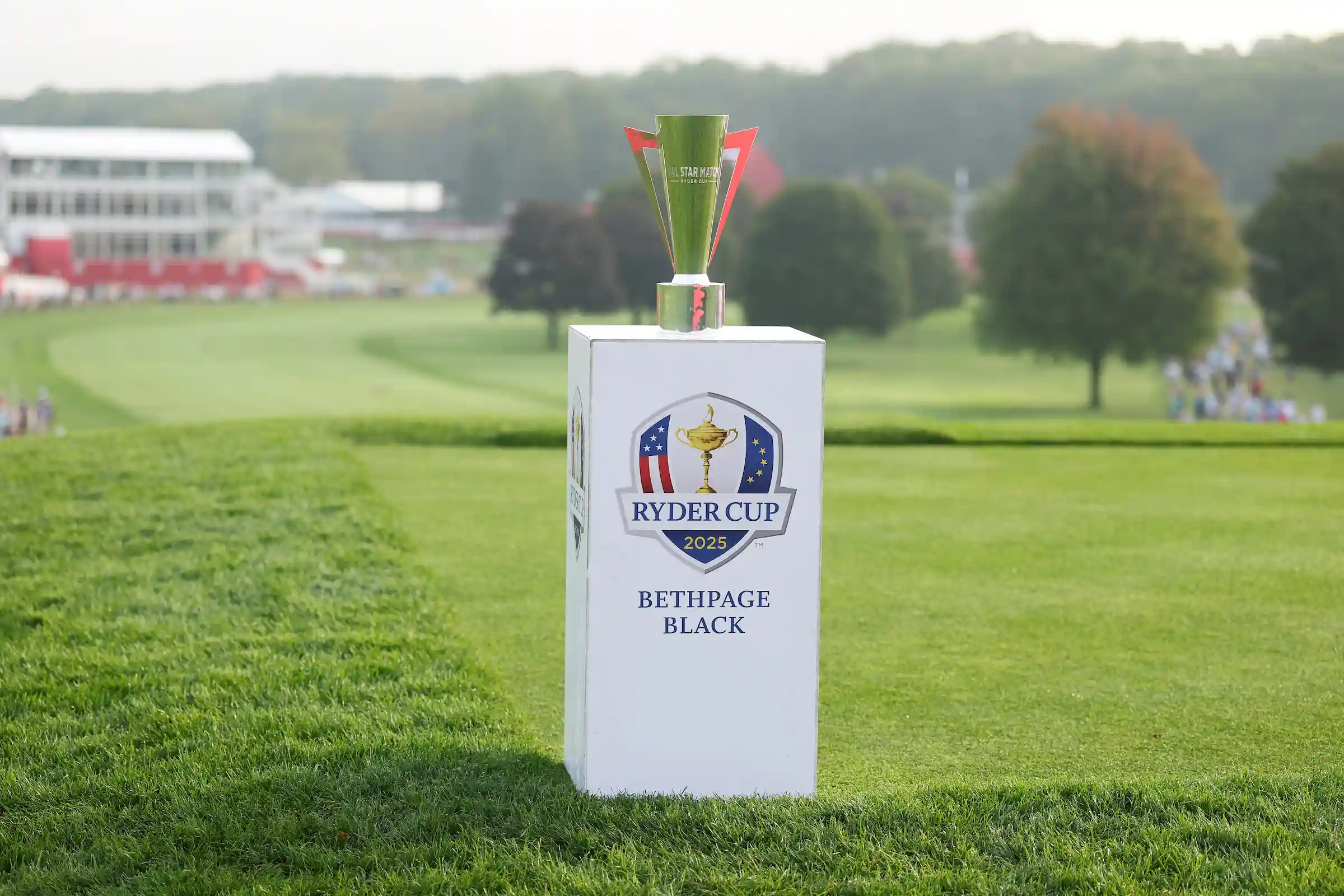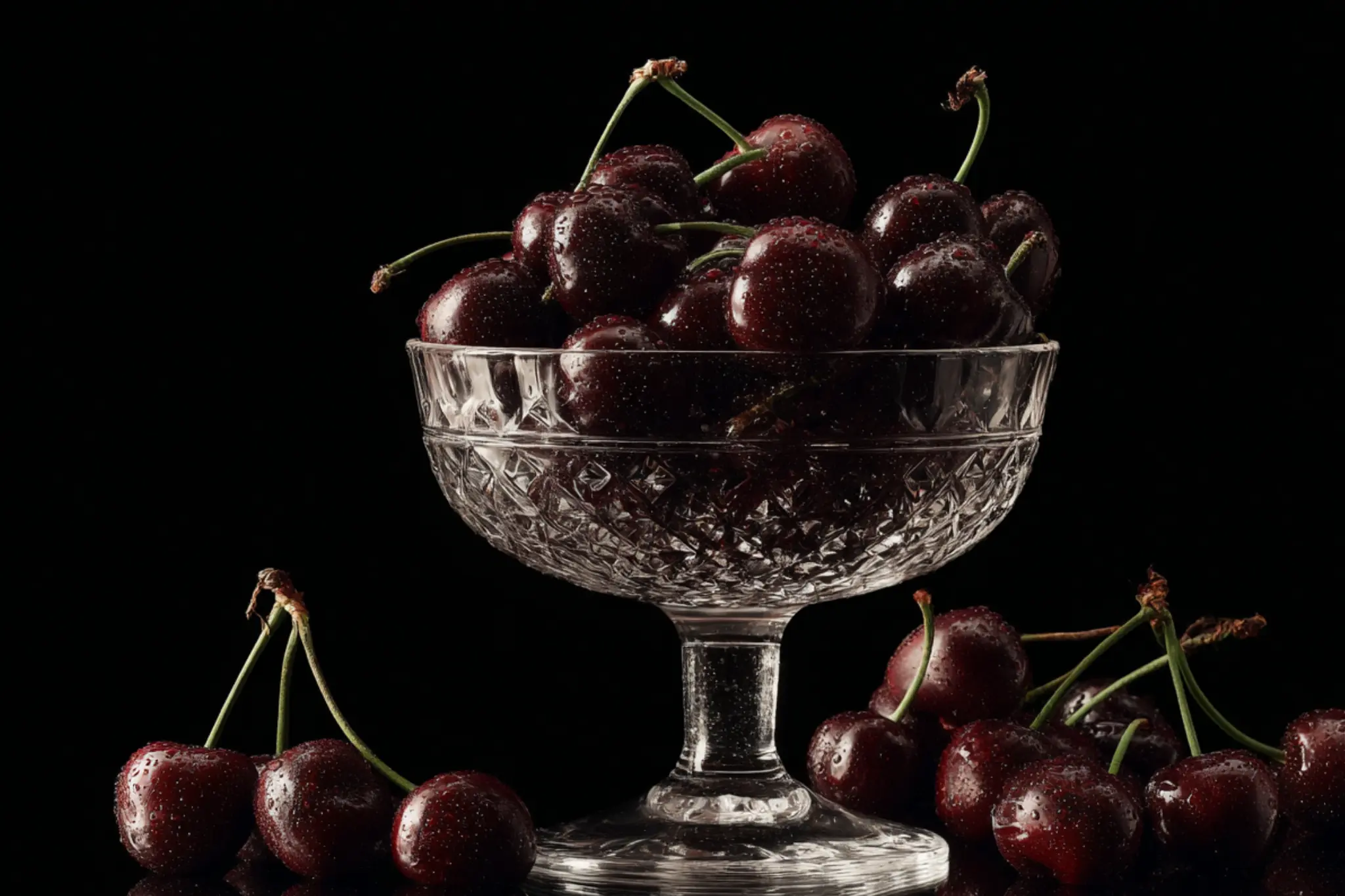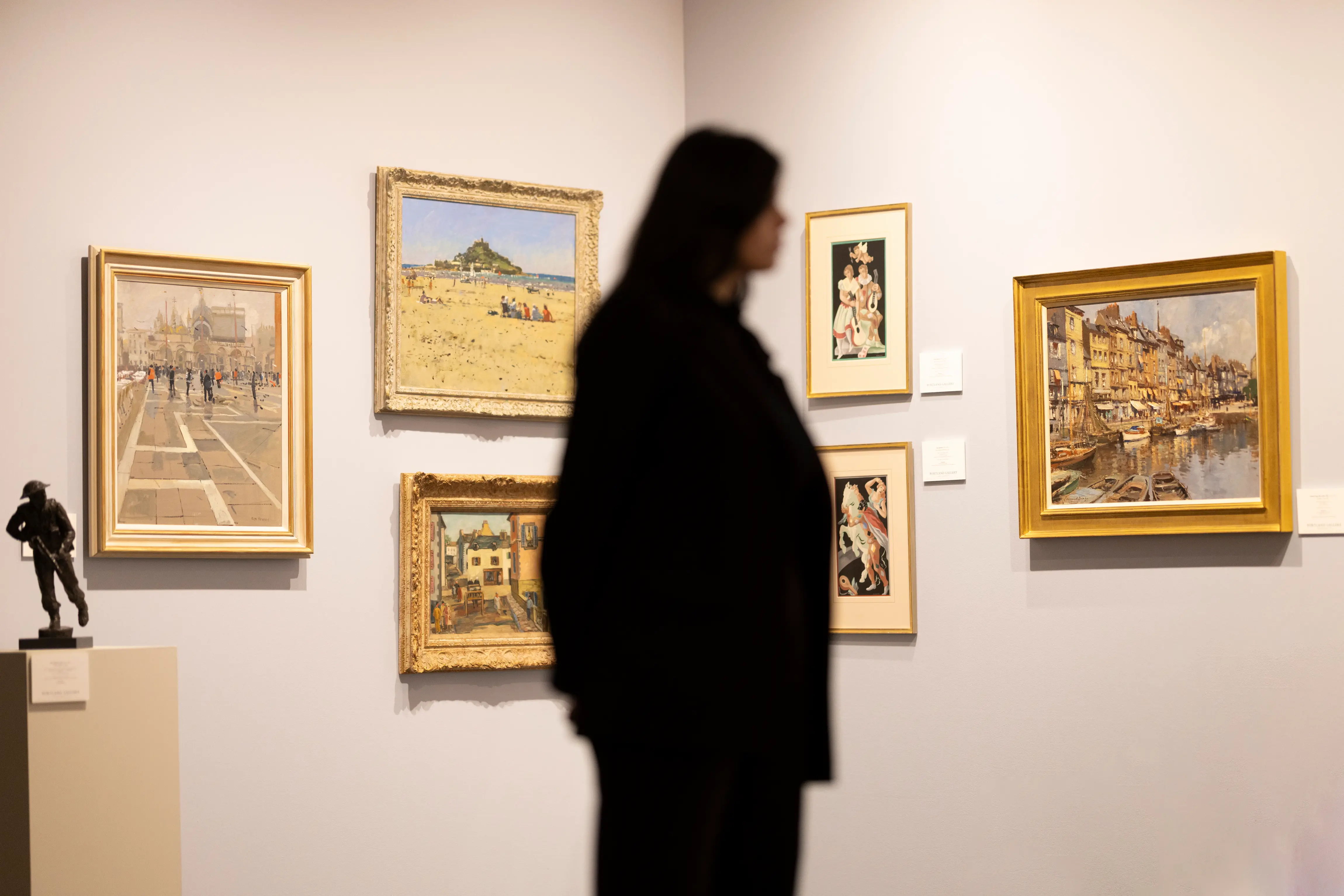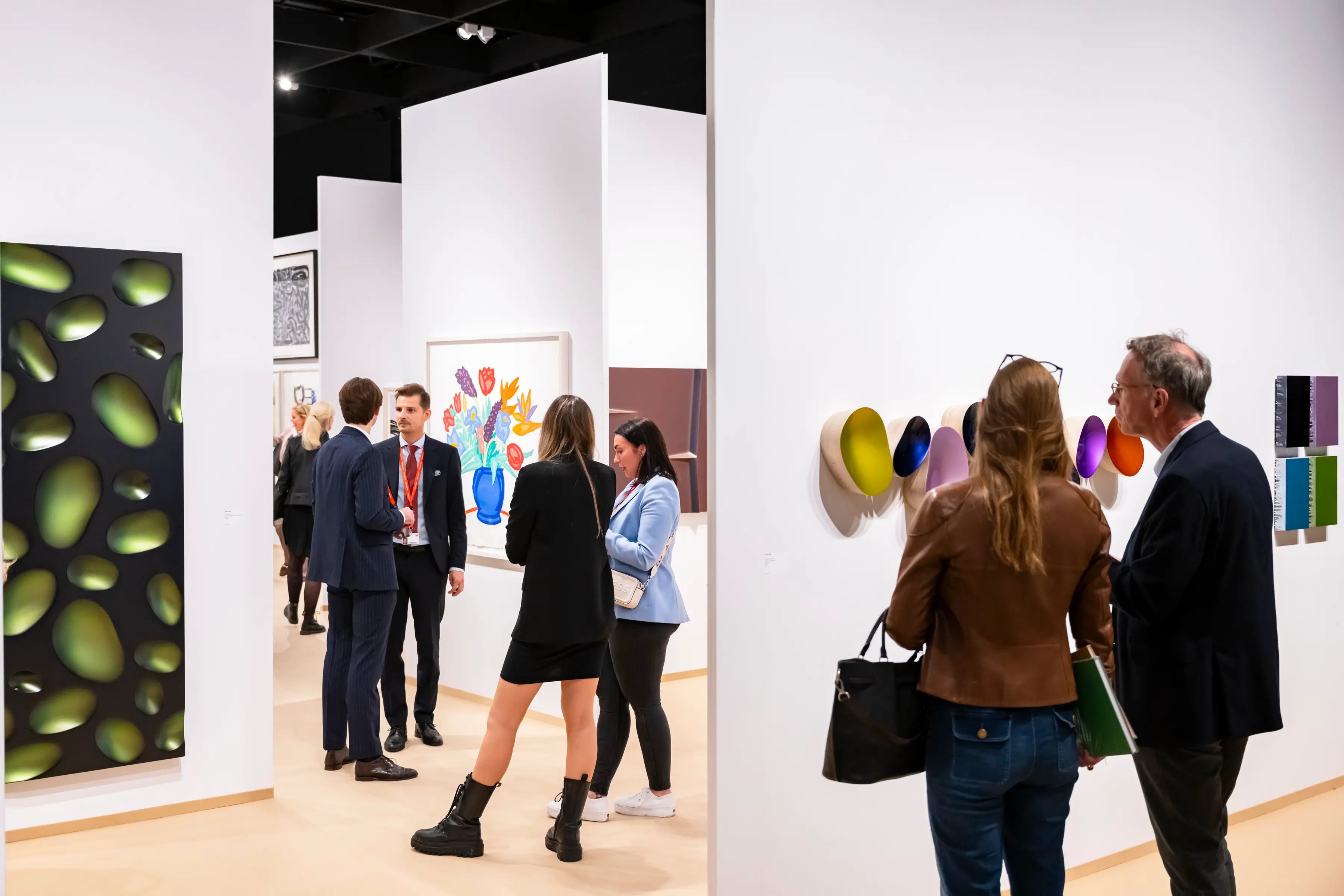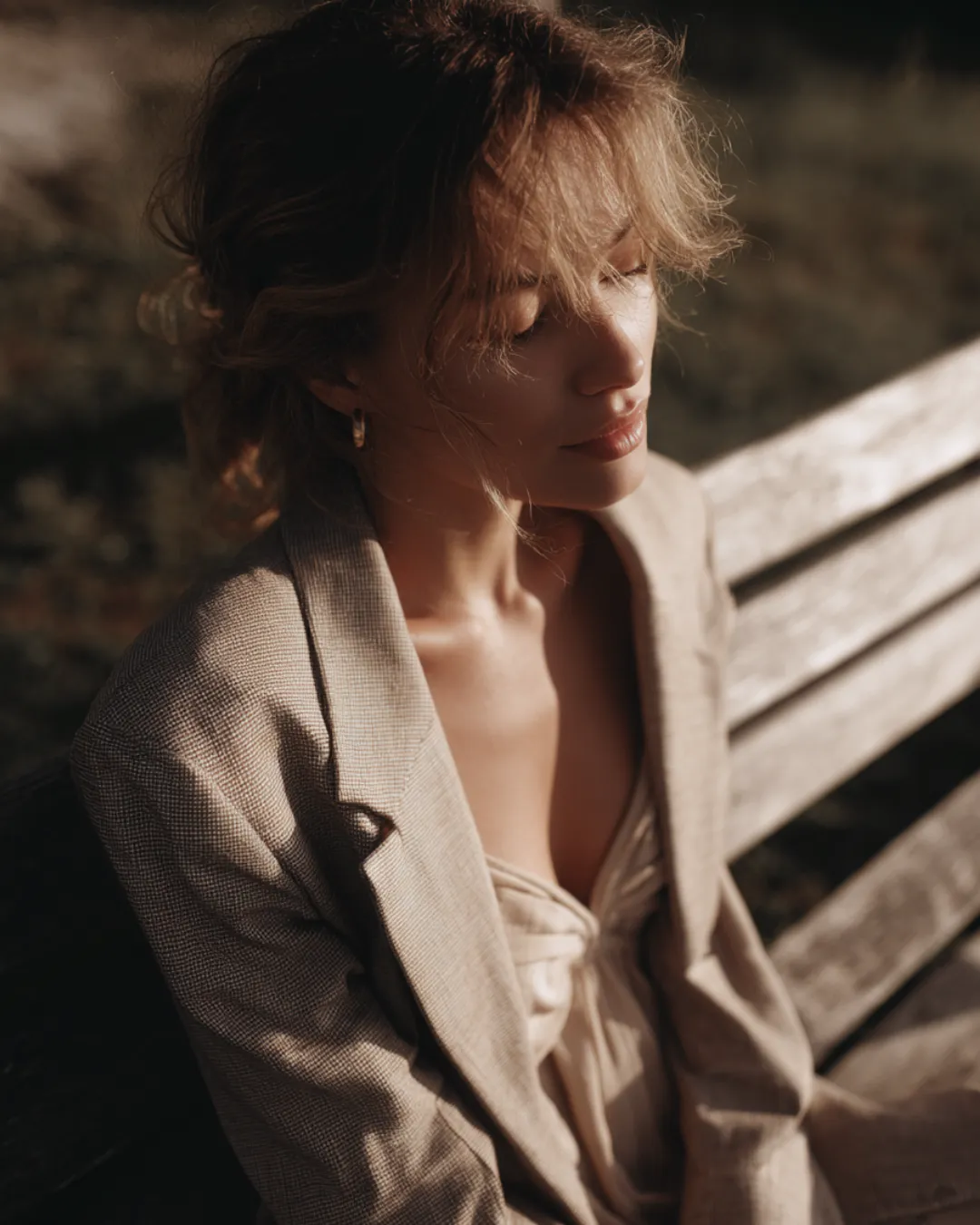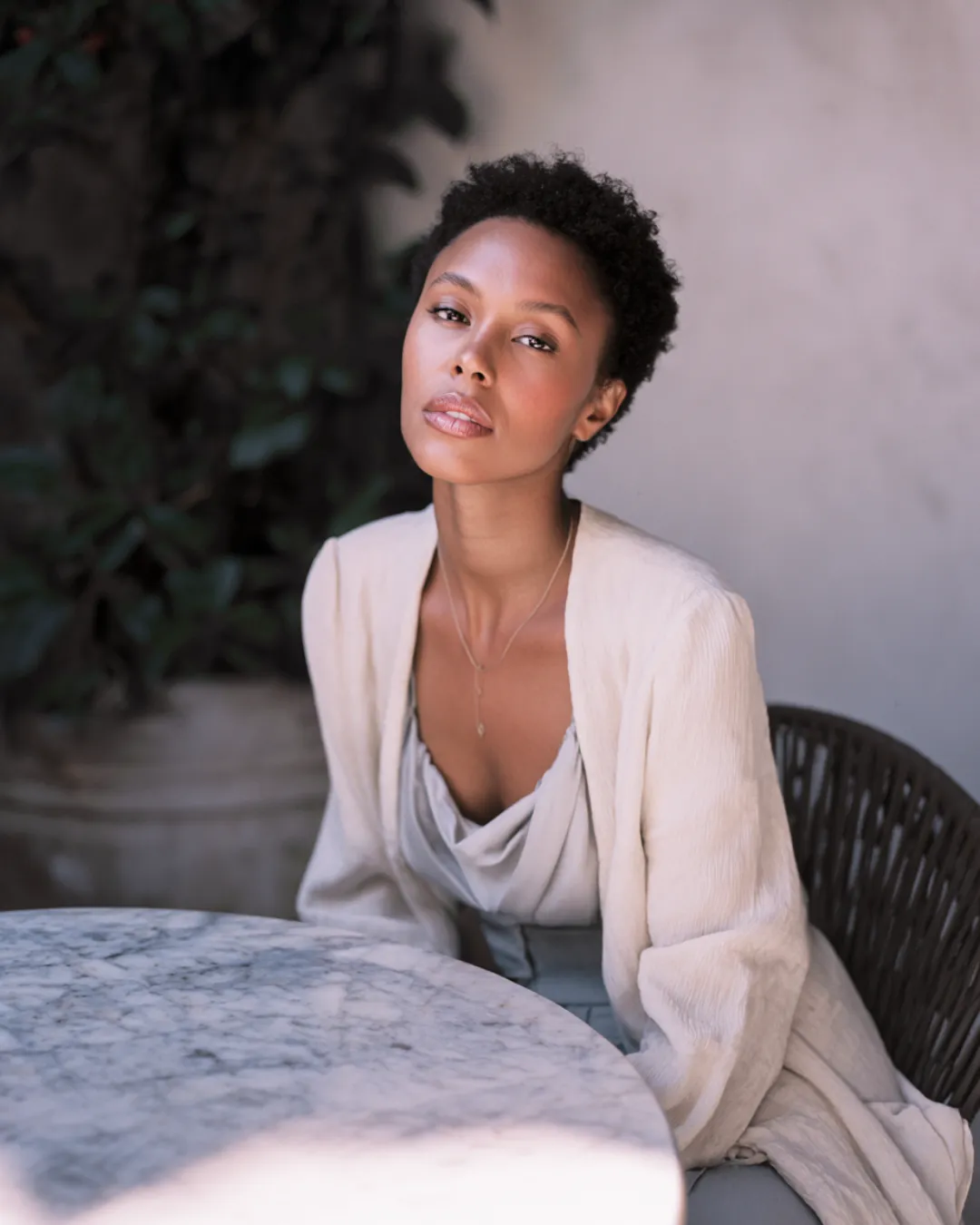Crowned at Bethpage Black: Europe’s Opulent Triumph in 2025
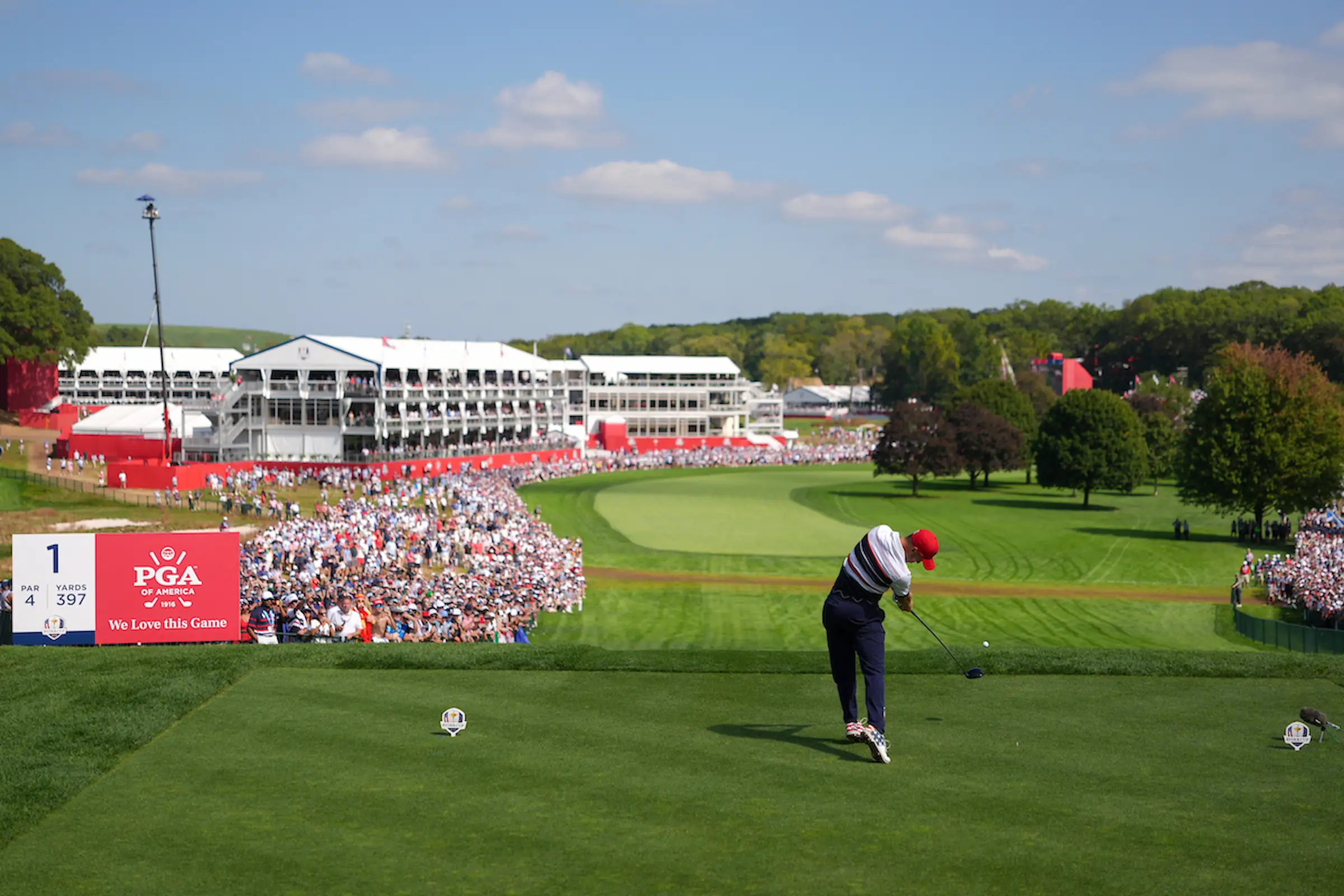
Courtesy of Hauser & Wirth
Courtesy of Astra Marina Cabras
Courtesy of LA Art Show
Courtesy of Lukas Gansterer
Courtesy of Henge
Courtesy of Andreas Simopoulos
Courtesy of Dave Benett
Courtesy of Japan Mobility Show
Courtesy of ART Cologne
Courtesy of whenobjectswork / Kate Hume
Courtesy of Ivan Erofeev
Courtesy of Stéphane ABOUDARAM - WE ARE CONTENT(S)
Courtesy of Sacha Moreau / Global Gift Gala Monaco
Courtesy of Fadi Al Shami
Courtesy of Sofia Hartmann
Courtesy of Historyhd
Courtesy of Mick De Paola
Courtesy of the artist (c) VG Bild-Kunst, Bonn 2025. Photography by Jens Ziehe.
Courtesy of Yasamine June
Courtesy of Rawisara Prachaksubhanit
Courtesy of Mariia Dred for Berlin Fashion Week
Courtesy of Michael Fousert
Courtesy of Raden Prasetya
Courtesy of Antonia Tewes
Courtesy of Antonia Tewes
Courtesy of Carlo Bazzo
Courtesy of Artem Zakharov
Courtesy of James Cochrane / Copenhagen Fashion Week SS26
Courtesy of Fashion Week Studio
Courtesy of Burak Goraler / AFW
Courtesy of Antonia Tewes
Courtesy of SF / Luigi Caputo
Courtesy of Bruno Cordioli / CC BY 2.0 via Wikimedia Commons
Courtesy of Dubai Fashion Week / Ruzaini Official
Courtesy of Frieze Seoul 2025 / Wecap Studio
Courtesy of LecartPhotos
Courtesy of Jacopo Salvi / La Biennale di Venezia / ASAC Photo
Courtesy of Campione d’Italia’s Classic Circuit
Courtesy of Maxi Yacht Rolex Cup
Courtesy of Jochem Raat
Courtesy of Corey Watson
Courtesy of Pitti Immagine / Fragranze
Courtesy of Le Sable
Courtesy of Once Milano
Courtesy of Monaco Yacht Show
Photo by Darren Carroll/PGA of America
Courtesy of Guy Bell / British Art Fair
Photo by Sean Zanni / Patrick McMullan via Getty Images
Courtesy of Messe München GmbH / Thomas Plettenberg
Courtesy of ph G Martin-Raget/SNST
Courtesy of David Pupăză
Courtesy of Derek Rose
Courtesy of Jim Winslet
Courtesy of Millie Turner/BFI
Photo by Hugo Glendinning. Courtesy of Frieze
Courtesy of Rolex / Kurt Arrigo
Courtesy of Laura Dupuy
Courtesy of Palm Beach Show Group
Courtesy of Getty Images for Perelman Perfor
Courtesy of BFA 2025
Images credited Jason Alden courtesy of LAPADA
Courtesy of Informa Markets
Courtesy of The Qatar Boat Show
Courtesy of Getty Images for Baby2Baby
Courtesy of Jeanne Canto
Courtesy of Darian DiCianno
Courtesy of David Long/Cancer Research UK
Courtesy of Saslong Classic Club
Courtesy of Dieter Nagl für die Wiener Philharmoniker
Courtesy of Derek Rose
Courtesy of Lukas Gansterer
Courtesy of Sam Frost
A
T
I
S
I
O
O
T
M
I
L
L
L
C
S
S
T
T
A
T
H
F
T
E
F
O
A
T
F
I
T
T
T
T
I
I
T
I
O
P
S
A
S
U
O
A
E
G
B
I
A
I
L
I
T
M
O
G
U
I
L
S
N
I
D
U
T
A
F
I
W
F
O
A
A
M
L
I
V
I
I
S
A
J
n September 2025, the storied Black Course at Bethpage State Park in New York hosted golf’s most prestigious contest. Team Europe edged the United States 15–13, securing the 45th Ryder Cup – their first victory on American soil since 2012. The week-long clash combined fierce match-play drama with high-society pageantry. Inaugurated in 1927, the Ryder Cup has become “one of the most watched sporting events in the world,” uniting the game’s best in a setting steeped in heritage.
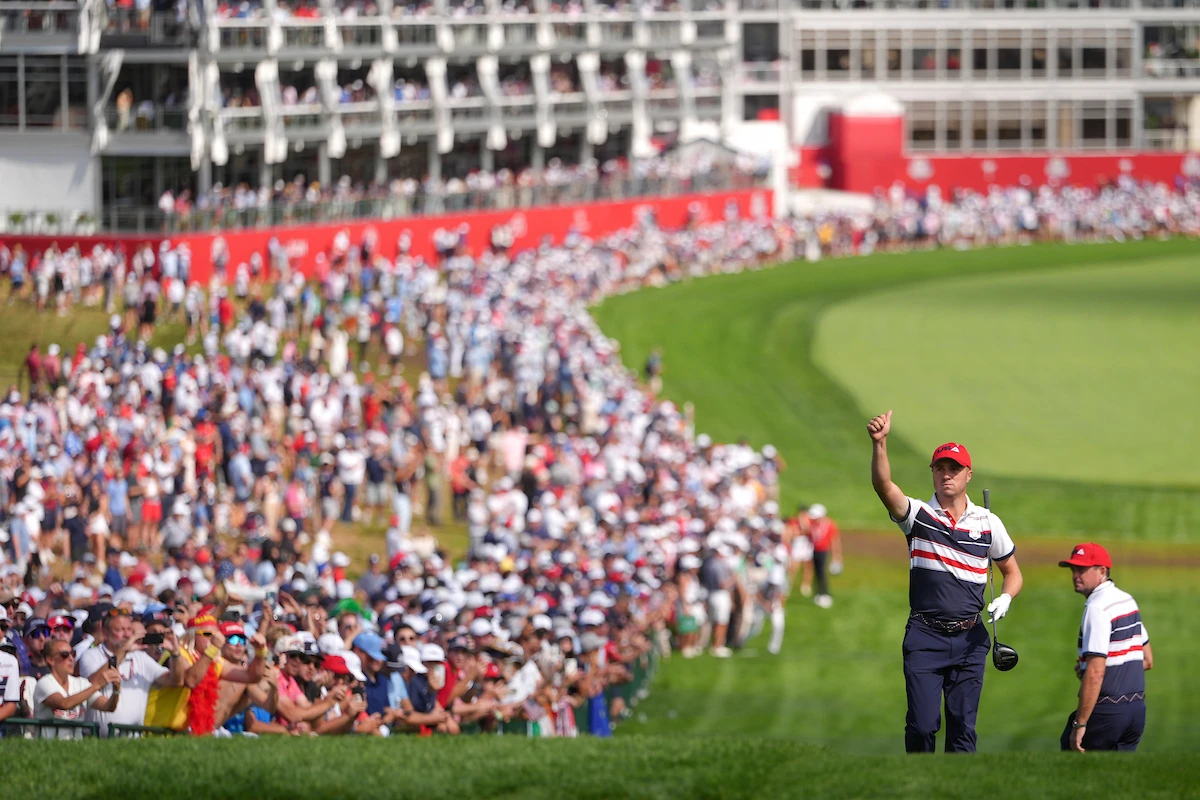
Tradition and Prestige
The Ryder Cup’s aura is rooted in history. Rolex – long-time partner of the event – notes that it “plays out in style...bringing together the world’s top players in a unique setting”. Originally a Britain–USA match in 1927, today’s contest pits Europe against the United States in a rivalry that has defined modern golf. Its symbolism extends beyond the trophy: the Nicklaus–Jacklin Award, born of Jack Nicklaus’s famous 1969 concession to Tony Jacklin, honors sportsmanship. In 2025, Europe’s Tommy Fleetwood received the prize, having gone 4–1–0 and embodying the Ryder ethos of victory with integrity. Such traditions appeal deeply to connoisseurs of culture and sport alike.

The People’s Country Club
This year’s venue carried particular gravitas. Bethpage Black, a public course on Long Island, is revered as both brutally demanding and accessible to everyday golfers. Designed by A.W. Tillinghast in 1936, it became the first state park course to host the Ryder Cup. Known as the “People’s Country Club,” Bethpage is paradoxically democratic yet majestic. Its rugged fairways, which have staged U.S. Opens and PGA Championships, were elevated into an arena of global prestige. The juxtaposition of public golf with the game’s elite amplified the Cup’s unique character: tradition elevated in the most dramatic of settings.
The Format and the Fight
Over three days, 28 points were contested: team matches on Friday and Saturday, singles on Sunday. Europe seized control early, sweeping the opening foursomes and fourballs. By Sunday, the U.S. mounted a spirited comeback, but the Europeans prevailed 15–13. The final margin, though slim, concealed Europe’s commanding start. Shane Lowry’s clutch birdie on the 17th hole secured the decisive point, epitomizing the Ryder Cup’s knife-edge tension. The scoreline reinforced an eternal truth: in this contest, every half-point carries historic weight.
Captains and Champions
Leadership was central. Europe’s Luke Donald became the first repeat captain since Bernard Gallacher, his calm stewardship praised even by rivals. U.S. captain Keegan Bradley hailed him as “the best European Ryder Cup captain of all time”.
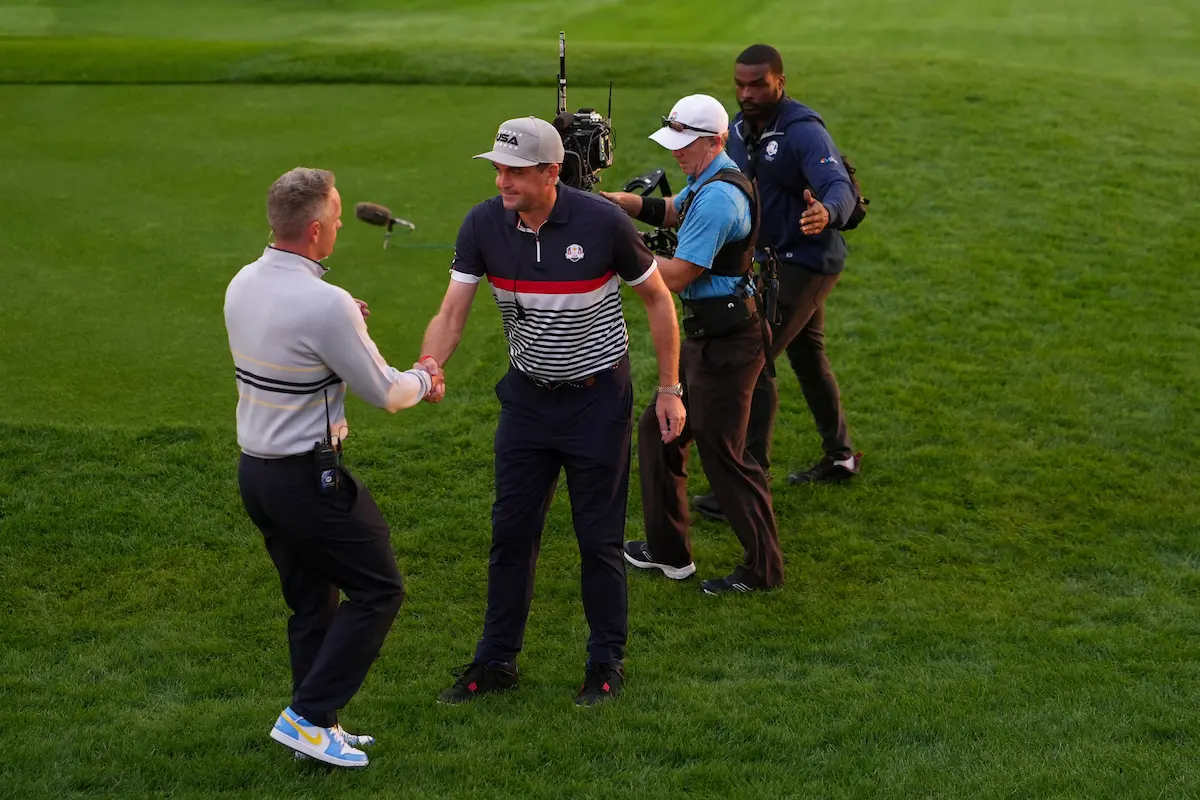
Donald orchestrated a balanced blend of veterans and rising stars. Fleetwood shone, his synergy with Rory McIlroy proving unstoppable, while Justin Rose and Jon Rahm added gravitas. For the U.S., Scottie Scheffler, Justin Thomas, and Xander Schauffele fought valiantly but could not overcome Europe’s early surge. The rosters resembled a summit of golf aristocracy, each performance scrutinized by the global elite.
The Ryder Spirit
What lingers from Bethpage is not merely who won, but how. Fleetwood’s composure under pressure earned him the Nicklaus–Jacklin Award, recognizing that “true success is measured not only by points won but by winning the right way”. Players on both sides embraced this ethos: applauding rival shots, offering consolations, and exemplifying courtesy. That duality of fierce competition and gentlemanly spirit is why the Ryder Cup resonates so profoundly with patrons of heritage and refinement.
A Global Cultural Stage
The Ryder Cup today is as much cultural pageant as sporting duel. Esteemed sponsors – BMW, Rolex, Aon, Citi – reinforce its elite image. NBC Sports broadcast over 100 hours of live coverage, while RyderCup.com and its app delivered immersive experiences. At Bethpage, galleries dressed for the occasion mingled with dignitaries, executives, and cultural figures. As The Guardian noted, Trump’s attendance lent further symbolism. Few sporting events merge sport, politics, and society with such flair.
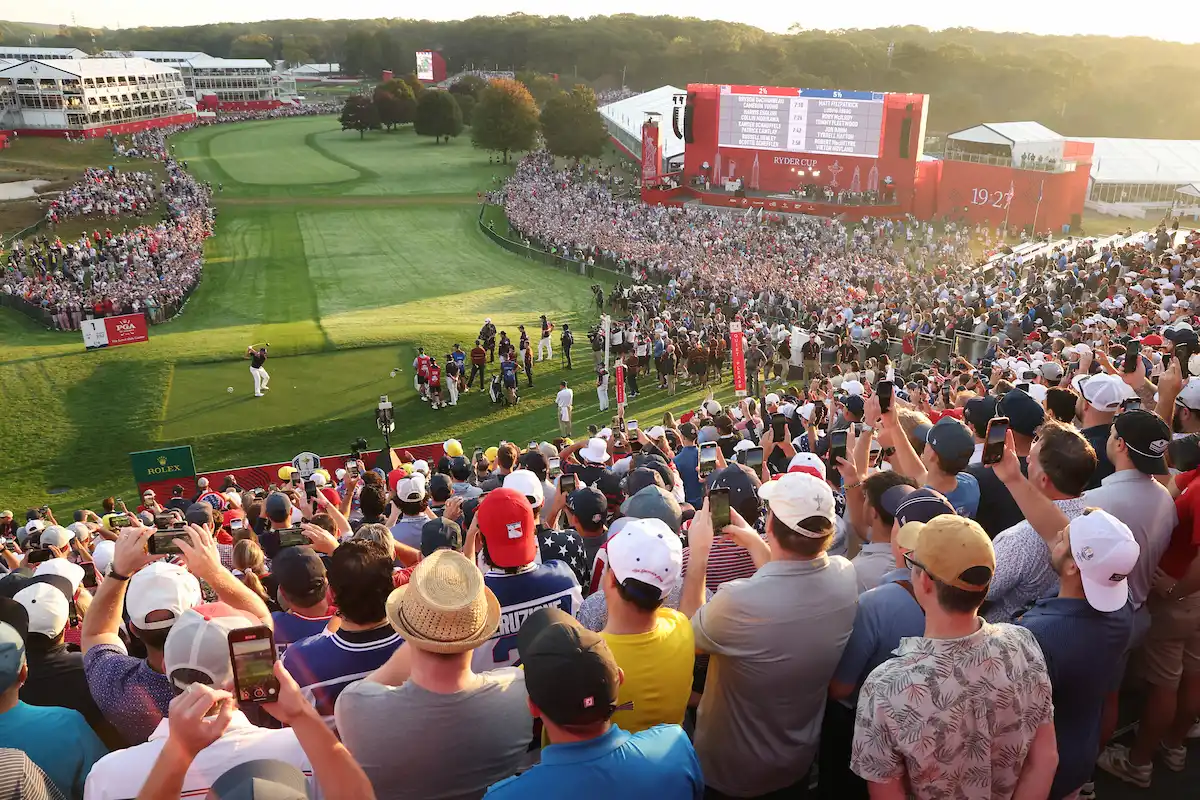
The Enduring Significance
Bethpage Black 2025 confirmed once again why the Ryder Cup stands apart. Europe’s victory was historic; the spirit of the contest timeless. For tastemakers and traditionalists, it remains the purest expression of golf’s dual appeal: exclusivity balanced with accessibility, competition tempered by grace. To witness the Ryder Cup is to engage not only with sport but with a cultural ritual – one that affirms its place among the world’s most refined and resonant spectacles.
